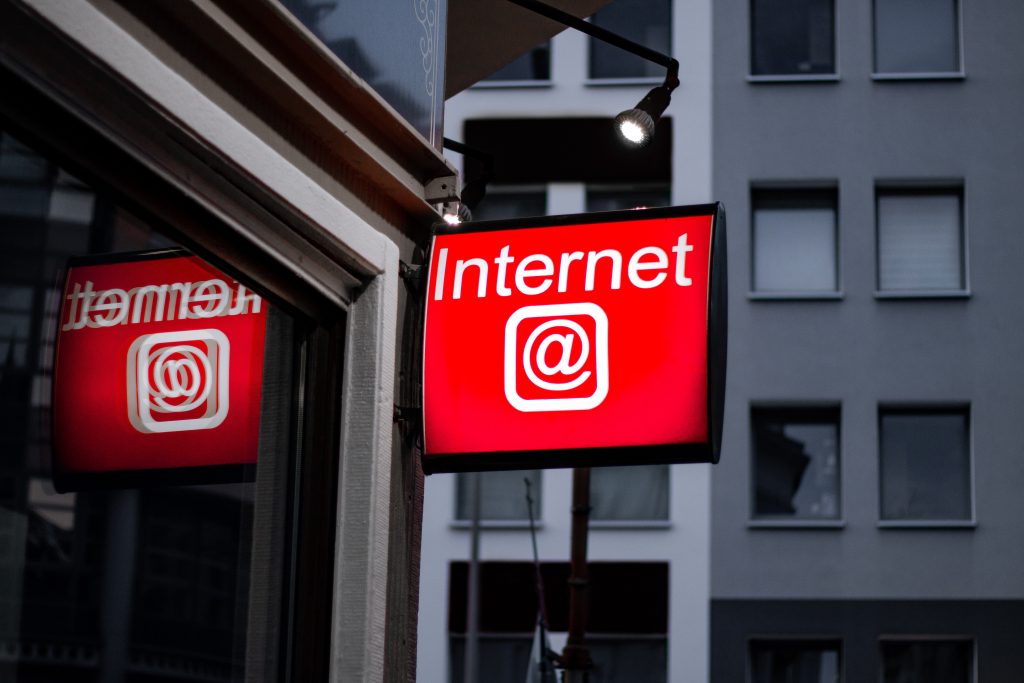
Amid growing regulatory threats to online media in Albania and attempts by the media community to self-regulate, BIRN’s new report reveals the key role that internet governance plays in media freedom.
The rapid spread of the internet and growing use of social media in Albania has significantly affected the behaviour of existing or traditional media as well as native digital media. The emergence of online media outlets has dramatically changed the media landscape.
BIRN Albania’s latest report, “Internet Governance in Albania and Its Role In Media Freedom”, explores a number of topics where Internet governance and regulation intersect with online media, market conditions, financial regulations, access to information and data protection, and copyright and cyber-security.
The report aims to provide a clear overview of the rights and responsibility of online publications in the Internet environment and the governance of this environment by public institutions, while encouraging a multi-stakeholder debate with the goal of supporting and strengthening freedom of expression and the professional practice of journalism on the Internet.
Freedom of expression and media freedom under threat

Photo: Raphael Nogueira
Although there is no specific law on online media in Albania, constitutional principles on freedom of expression and freedom of the press do extend their rights and restrictions to online outlets, while the regulatory environment on Internet governance, both domestic and foreign, influences how these outlets operate and do business.
Newly proposed regulations and amendments on the subject met strong resistance from the journalistic community and rights organisations in Albania and abroad. These moves were also contested by the European Commission and the Council of Europe.
In spite of the government’s attempts to shrink the space for professional journalism, freedom of expression and media are clearly defined in the Albanian constitution as well as in the international treaties and agreements that the country has ratified.
While Albania’s broadcast media and the press are controlled by a handful of powerful families, which have affiliated businesses in regulated markets, online media outlets are more diverse.
Many are start-ups owned by journalists, and allow more diverse viewpoints and reporting angles.
But, even though online media have become one of the main sources of information in Albania, Albanian legislation currently provides no definition of online media. Nor does the audio-visual media law or the e-commerce law.
Access to the internet is vital to free speech
Access to the Internet as a means of communication to exercise freedom of expression and information is guaranteed in Albania in the context of the domestic legal framework.

A survey conducted in 2019 on the use of information technology by families and individuals conducted by the Albanian National Institute of Statistics, INSTAT, showed that 82.2 per cent of all households now have access to the Internet, compared to 80.7 per cent a year earlier, and 66.4 per cent in 2016.
INSTAT found that 68.8 per cent of all individuals aged between 16 and 74 in Albania had used the Internet within three months of the survey being conducted, 87.1 per cent of whom used it daily.
Article 1, of the Law on Electronic Communications in Albania, no. 9918, of 19 May 2008, refers to net neutrality under the principles of the law – but it contains no specific provisions on how to enforce it.
Emerging from the same problematic principles that underpin net neutrality, The Electronic Communications law does not regulate zero rating; it is left to the companies to negotiate or offer such services.
One service previously excluded by data caps from ISPs in Albania has been Facebook Zero. The lack of clarity from the government regarding zero rating is concerning, as it is particularly relevant to journalism and media organisations.
Domain registration is linked to press freedom
Domain name management and administration is central to broader Internet governance, and directly affects press and media freedom within a country.
Domain registration in Albania for the ccTLD .al is regulated in the Electronic Communications law. It stipulates that domain names are registered “to serve the general interest of the public” and “to ensure especially the protection of intellectual property”. Web hosting companies are also mainly regulated by the the Electronic Communications law.
The main institution administering the .al ccTLD and its subdomains is AKEP. This maintains and updates a list of reserved and forbidden names and collects data and documents from the physical persons and legal entities that register.
The BIRN report states that blocking domain names is a key form of censorship imposed around the world, and is often used to prevent access to information and silence dissent.
Social media companies have unfair tax advantage
Online media in Albania operate on the same financial rules and tax regimes as other businesses registered in the country. No specific tax or financial rules, subsidies, or incentives are designed specifically for online media outlets.
Albania’s legal framework does not provide for any form of subsidies for journalism and the media, either for legacy or online media outlets.
Social media companies like Facebook, Google and Twitter, along with other online media not registered in Albania, should have a registered agent in the country and pay a tax rate similar to native online media outlets.
The BIRN report notes that the lack of taxation of their advertising products gives them de facto an unfair advantage to local online media outlets; these are taxed at the rate of 20 per cent.
Online media in Albania have often been the target of verbal abuse by politicians at the highest levels of power. Research conducted by BIRN also indicates that the biggest factors influencing the Albanian media’s editorial line are the political and economic interests of media owners, which in turn place pressure on many journalists to self-censor.
Thus, media outlet ownership transparency is important for the public to identify any political and economic bias that might influence the coverage of a certain topic or issue, as well as recognise conflicts of interest.
However, Albanian legislation does not provide any specific provision for the public disclosure of the ownership of media outlets.
Restrictions on freedom of expression online

Although the Albanian constitution and the European Convention on Human Rights recognise fundamental rights to freedom of expression and freedom of the media, they also provide for proportional restrictions.
Defamation in Albania remains a criminal misdemeanour, punished by fines, while the main legal instrument against hate speech is the provision of several anti-hate crimes and misdemeanours in the criminal code. Hate speech is also addressed, albeit indirectly, in Albania’s anti-discrimination law.
In the context of the infringements, copyright violations are considered one of the biggest problems facing the online media, followed by the lack of quality information and financial difficulties.
Criteria and conditions for copyright protection are listed in the report. Despite the legal protection granted to audio and visual products via copyright, the country’s copyright law (Article 12.1) does not protect news and press information, both offline and online, which are simply informative in nature.
Journalists safeguard the public’s right to know
The growing number and influence of online media have certainly given journalists more space and freedom to express their views and report on different issues in ways that might not always be welcome in traditional media.
Journalists have the right to inform about news of public interest, preserving the essence of information, but they are also obliged to avoid references to personal data when possible. All actions taken by journalists should be shaped by the public interest.
The report lists two sets of special instructions and considerations (Protection of minors and court and crime reporting) for journalists on how to protect personal and sensitive data.
The most recent Code of Ethics for Journalists was drafted in 2018. This was done by the Albanian Media Institute, AMI, with the support of the project Reinforcing Judicial Expertise on Freedom of Expression and the Media in SouthEast Europe, JUFREX – a joint initiative led by the European Union and the Council of Europe.
According to a set of Ethical Guidelines for Online Journalism , online journalism must respect all professional code of ethics and the core values of journalism, irrespective of the forum or format it uses.
No clear rules for content removal
Recognising that content moderation and removal policies are widely debated – and divisive – on the global level, the report provides a non limited list of potential solutions that may contribute to a healthier online environment.
In Albania, no specific law explicitly regulates the filtering and blocking of illegal Internet content. However, the provisions of several laws regulate illegal Internet content. The Electronic Communications law empowers the AKEP to enforce its requirements.
There is no official or published list of what is considered illegal and/or harmful content, or of the competent authorities that can ask the ISPs to remove illegal content. For this reason, the key institutions mandated by law to order the removal of illegal content are listed below, based on the caseload developed by AKEP.
Judicial and law enforcement agencies can request the removal of illegal content based on the relevant articles in the criminal code. One of the most problematic requests from law enforcement agencies, passed on to ISPs through AKEP, was the blocking of the domain of the popular online media Jeta Osh Qef (Joq.al) following the deadly 26 November 2019 earthquake in Albania.
The report also mentions other relevant agencies and bodies dealing with content removal, such as the Audio-visual Media Authority, AMA, and the Commissioner for Personal Data Protection.
Progress in cybersecurity legislation
Albania has made significant progress in recent years in developing the ICT sector and the use of information technology, IT.
Albania ratified the Convention on Cybercrime – known as the Budapest Convention – on 25 April 2002, with Law no. 8888. Its criminal code is mainly in line with this important international instrument, containing several specific articles dedicated to fighting cybercrime.
Although not directly related to cybersecurity, the criminal code also details the consequences of engaging in various anti-social electronic and/or online activities.
Another important law governing cybersecurity is Law no. 2/2017, “On Cybersecurity”; the entity responsible for applying this law is the NAECCES.
The law’s main aim is to achieve a high level of cybersecurity within Albania by defining security measures, rights, and obligations, as well as mutual cooperation between entities operating in the field of cybersecurity.